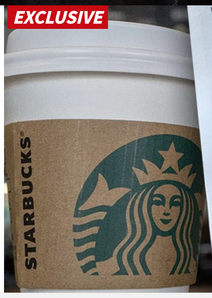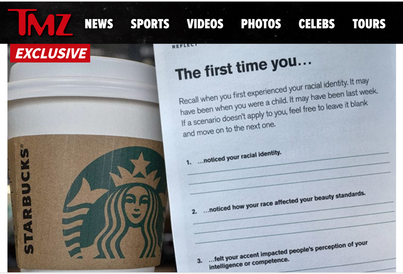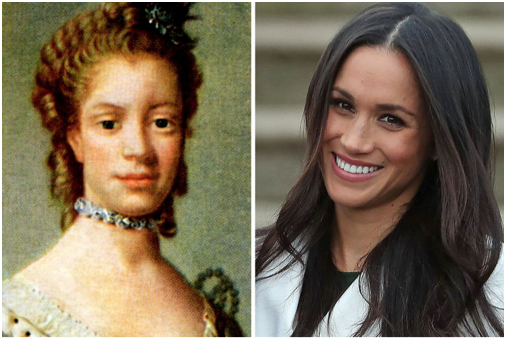
By Dr. Bentley Gibson
Yesterday, Starbucks shut down thousands of stores nationwide for employees to receive unconscious/implicit bias training. As a researcher on how implicit bias forms and the best ways to reduce it, I was both excited and nervous when I heard about this highly publicized training. Excited, because the topic I spent the last 7 years of my career examining was receiving national attention. Nervous, because I was concerned about how effective this implicit bias training would be. While it is great that awareness of the topic is increasing, this increased awareness does not necessarily lead to changes in attitudes and behaviors. After years of teaching about implicit bias to a variety of audiences, one thing I have learned is that when people become aware of implicit bias there is often times an immediate push-back. I have seen individuals shun the concept, and characterize implicit bias as a societal issue, but not a personal issue. As a Psychologist, I know that people want to maintain positive self-images, and often times learning about implicit bias causes what is known as cognitive dissonance, a disconnect between how a person would like to see themselves (not biased) and how a person is unconsciously operating (biased). This disconnect leads people to be uncomfortable, and can even lead them to rationalize their biased attitudes and behaviors in order to maintain a positive self-image. So, something told me that increased awareness about implicit bias may not be the solution, and in fact may cause more problems. Information is now coming out about Starbucks' unconscious bias training, and I am seeing some red flags.
My first red flag moment occurred when I heard a report on the news stating that the rapper Common was going to be a part of implicit bias training videos. While I admire Common for being a talented artist, an intellect, and a highly influential social activist, he may not be best for reducing implicit race bias. There is research showing that presenting African Americans in stereotypical ways (i.e. a rapper/entertainer) does not help reduce stereotypes. In fact, I recently conducted a study that showed the opposite, counter-stereotypical examples (i.e. African American lawyer, doctor, or other high achieving academic/social statuses) are more effective at reducing implicit, anti-Black race bias. While Common is a highly intelligent entertainer, I’m concerned about whether or not the trainers tested whether or not his intelligence overrides him being an entertainer, and truly changes stereotypes. While many may be able to see him as both, I'm concerned about those trainees who will regardless just see the STEREOTYPE (entertainer/rapper). How do we change them?
Yesterday, Starbucks shut down thousands of stores nationwide for employees to receive unconscious/implicit bias training. As a researcher on how implicit bias forms and the best ways to reduce it, I was both excited and nervous when I heard about this highly publicized training. Excited, because the topic I spent the last 7 years of my career examining was receiving national attention. Nervous, because I was concerned about how effective this implicit bias training would be. While it is great that awareness of the topic is increasing, this increased awareness does not necessarily lead to changes in attitudes and behaviors. After years of teaching about implicit bias to a variety of audiences, one thing I have learned is that when people become aware of implicit bias there is often times an immediate push-back. I have seen individuals shun the concept, and characterize implicit bias as a societal issue, but not a personal issue. As a Psychologist, I know that people want to maintain positive self-images, and often times learning about implicit bias causes what is known as cognitive dissonance, a disconnect between how a person would like to see themselves (not biased) and how a person is unconsciously operating (biased). This disconnect leads people to be uncomfortable, and can even lead them to rationalize their biased attitudes and behaviors in order to maintain a positive self-image. So, something told me that increased awareness about implicit bias may not be the solution, and in fact may cause more problems. Information is now coming out about Starbucks' unconscious bias training, and I am seeing some red flags.
My first red flag moment occurred when I heard a report on the news stating that the rapper Common was going to be a part of implicit bias training videos. While I admire Common for being a talented artist, an intellect, and a highly influential social activist, he may not be best for reducing implicit race bias. There is research showing that presenting African Americans in stereotypical ways (i.e. a rapper/entertainer) does not help reduce stereotypes. In fact, I recently conducted a study that showed the opposite, counter-stereotypical examples (i.e. African American lawyer, doctor, or other high achieving academic/social statuses) are more effective at reducing implicit, anti-Black race bias. While Common is a highly intelligent entertainer, I’m concerned about whether or not the trainers tested whether or not his intelligence overrides him being an entertainer, and truly changes stereotypes. While many may be able to see him as both, I'm concerned about those trainees who will regardless just see the STEREOTYPE (entertainer/rapper). How do we change them?

Another question I had upon further investigation of Starbucks' training was, are they familiar with the most effective strategies at increasing positive implicit attitudes towards African Americans? While I am sure that much of their training is grounded in the body of research on implicit bias, how many of the specific strategies used in their training were tested ? There is a critical study that was conducted by Dr. Calvin Lai and his colleagues that showed effective strategies to reduce implicit bias. As mentioned above, presenting people with counter-stereotypical examples was found to actually CHANGE implicit bias. Another effective strategy that they found effectively reduces implicit bias is shifting group boundaries. This means changing “us” vs. “them” to “WE”. I’m afraid that one of the exercises used by the Starbucks unconscious bias trainers totally went against this principle. Participants were given a questionnaire that made minority trainees very uncomfortable by singling them out. They were asked to recall the first time they had some of the following experiences:
“noticed your racial identity”
“noticed how race affected your beauty standards”
“altered your communication style (dialed it up or down) to avoid playing into stereotypes”
“went to work with your natural hair without comments or questions from others”
While it is understandable that these questions are no doubt experiences that minorities encounter on a regular basis, reducing implicit bias does not involve talking about the many ways in which minorities experience prejudice and discrimination. In fact, many often hear this information and go “blah , blah, blah..yea we already know this, but I don’t do it. I'm not prejudiced!”. In fact, one of my studies suggests that too much talk about racism may actually increase implicit pro-White bias in some individuals. It creates an uncomfortable environment where minorities have to once again act as the “token minority” and explain all of their troubles in hopes that majority members will understand and change. Starbucks' employees stated that this training made them feel uncomfortable and excluded. TMZ reported, “Our source says this limited scope of questions caused many employees to be confused and even upset….because the questions were not all-inclusive and didn’t seem to bridge any gap between races.” We have years of experience showing that this strategy does not always improve race relations. The specific strategies I use in my workshops are designed to bridge the gap between different groups by highlighting their common identities and experiences, and to expose trainees to new information about African Americans.
As a social scientist, I always question whether or not an intervention's effectiveness has been tested. Often times we use interventions with good intentions, but find out they do not work, or worse, they are doing the opposite of our intended goal. I have created an effective intervention to tackle implicit race bias. How do I know it is effective? Because I examined more than just whether or not the intervention simply increased awareness of implicit bias, but rather did it actually change trainees attitudes and behaviors. After participating in my interventions I have witnessed SIGNIFICANT changes in implicit bias about African Americans. One reason implicit bias training may not be effective is because often the trainings are not guided by this same type of empirical evidence and theory. Also, implicit bias develops very early in childhood with years of experience with stereotypes in our society. For this reason, they are not easy to change and must be challenged using specific strategies. It is imperative that diversity trainers empirically measure whether or not they are actually producing significant, positive changes in attitudes and behaviors. If not, we will just continue to have people who know what implicit bias is, but have no idea what their implicit biases are, and have not been presented with the proper tools to change. My courses and research aim to correct this issue.
For more information on The Bias Adjuster's Unconscious Race Bias Trainings, contact Dr. Bentley L. Gibson:
The Bias Adjuster, LLC.
www.thebiasadjuster.com
1 W. Court Square
Decatur, GA 30030
404-494-7984
bgibson@thebiasadjuster.com
“noticed your racial identity”
“noticed how race affected your beauty standards”
“altered your communication style (dialed it up or down) to avoid playing into stereotypes”
“went to work with your natural hair without comments or questions from others”
While it is understandable that these questions are no doubt experiences that minorities encounter on a regular basis, reducing implicit bias does not involve talking about the many ways in which minorities experience prejudice and discrimination. In fact, many often hear this information and go “blah , blah, blah..yea we already know this, but I don’t do it. I'm not prejudiced!”. In fact, one of my studies suggests that too much talk about racism may actually increase implicit pro-White bias in some individuals. It creates an uncomfortable environment where minorities have to once again act as the “token minority” and explain all of their troubles in hopes that majority members will understand and change. Starbucks' employees stated that this training made them feel uncomfortable and excluded. TMZ reported, “Our source says this limited scope of questions caused many employees to be confused and even upset….because the questions were not all-inclusive and didn’t seem to bridge any gap between races.” We have years of experience showing that this strategy does not always improve race relations. The specific strategies I use in my workshops are designed to bridge the gap between different groups by highlighting their common identities and experiences, and to expose trainees to new information about African Americans.
As a social scientist, I always question whether or not an intervention's effectiveness has been tested. Often times we use interventions with good intentions, but find out they do not work, or worse, they are doing the opposite of our intended goal. I have created an effective intervention to tackle implicit race bias. How do I know it is effective? Because I examined more than just whether or not the intervention simply increased awareness of implicit bias, but rather did it actually change trainees attitudes and behaviors. After participating in my interventions I have witnessed SIGNIFICANT changes in implicit bias about African Americans. One reason implicit bias training may not be effective is because often the trainings are not guided by this same type of empirical evidence and theory. Also, implicit bias develops very early in childhood with years of experience with stereotypes in our society. For this reason, they are not easy to change and must be challenged using specific strategies. It is imperative that diversity trainers empirically measure whether or not they are actually producing significant, positive changes in attitudes and behaviors. If not, we will just continue to have people who know what implicit bias is, but have no idea what their implicit biases are, and have not been presented with the proper tools to change. My courses and research aim to correct this issue.
For more information on The Bias Adjuster's Unconscious Race Bias Trainings, contact Dr. Bentley L. Gibson:
The Bias Adjuster, LLC.
www.thebiasadjuster.com
1 W. Court Square
Decatur, GA 30030
404-494-7984
bgibson@thebiasadjuster.com


 RSS Feed
RSS Feed